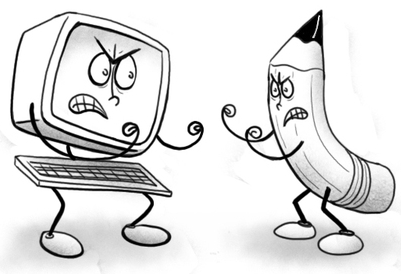The Death of Gendered Titles – The Eagle’s Cry Op-Ed
Prior to the 1960s it was not uncommon for newspapers to publish separate job listings for men and women. Was this the origin of gendered titles in the workplace? From actor to actress, waiter to waitress, businessman to businesswoman, all the way to weatherman and weatherwoman gendered titles have been prominent in the workplace longer than we can keep track of. Does it date back to these newspaper job publications? Or does it go further?
We may not know exactly when, but we can get to the bottom of understanding the why. Through this sexist language, expectations and stereotypes are set in society… all for what? Could it all lay simply on respect? Or perhaps more complexly on gender roles in society?
Gender-plagued titles imply that certain skill sets and capacities differ between genders. Why not just have one title? Why not just say “waitress?” The small but largely impactful difference between “waiter” and “waitress” informs gender unnecessarily. Men are just more respected in the workplace. Between the wage gap and America’s roots of male domination at work and in society, titles with gender distinctions don’t help the concept of true equality.
Take the title “chef” for example. “Chef” has no ties to gender. The title is of higher respect generally and in the kitchen itself. So why do titles of higher positions not differentiate between gender? Chef, chief, director, the list goes on. Titles of higher respect are not plagued by gender. It’s interesting to note this respect difference. Was this taken into account when gender was initially slipped into titles, or was there no second thought?
Today, many just refer to those with “actor” or “waiter” or really any other “male”-specific title. This newfound death of gendered titles diminishes the quite disrespectful connotations of “waiter” vs. “waitress.” The title distinction is pointless regardless. Why do we have to have gender specific titles? Gender is such a vast spectrum that having only two titles to account for everybody is ridiculous. Trying to force people into a box in the workplace and society nonetheless with a title is counterproductive. Instead of setting social norms, why can’t a title just be a title or a job a job without being tied to abstract concepts like gender?
On the other hand, there are some that still choose to correct people for disregarding the gender distinction. For instance, correcting someone for referring to a female actress as an actor. Why does it matter? It doesn’t. It even makes some people angry when the difference is ignored on purpose. The prevalence of gendered titles shows how ignorant people can be while also contributing to unnecessary division between men and women.
When asked her opinion on the topic, Evi, a BHS Senior and head editor of The Eagle’s Cry commented that, “the most realistic cause of gendered titles is our patriarchal society. It was most likely created to establish a power dynamic between men and women.” The foundation of gendered titles roots back to the very fact that our society is male dominated and unfortunately always has been.
Cassie, the Opinion Editor of The Eagle’s Cry said, “Different people don’t need different titles, it’s all the same. It doesn’t matter who’s doing the job, everyone is equally as capable and efficient to complete the tasks they signed up for.” Gender doesn’t define ability and isn’t a defining factor generally. The only thing that can determine efficiency in a workplace is the amount of effort an individual puts in.
Seemingly small cases like the one of gendered titles draws a spotlight to the everlasting sickness of the patriarchy. There will always be influence from when times were different even as we change and prevail in the future and work towards bettering our society. Some things will leak their way into the change we create and can’t be helped if we choose to overlook them.
Gendered titles may not seem like a big deal to the ignorant, but in reality they stand for the change that has been happening, and needs to happen. It sheds light on the possibility and necessity of growth and for the future to be better. It serves as a small reminder of how some things, no matter how small, need to change.

Emily Betwinek is currently a senior at Bethpage High School. She is one of the two head editors of The Eagle’s Cry. She is also a member and Drum Major...






